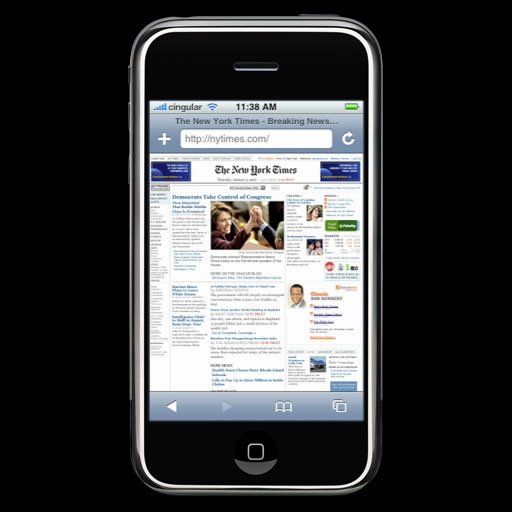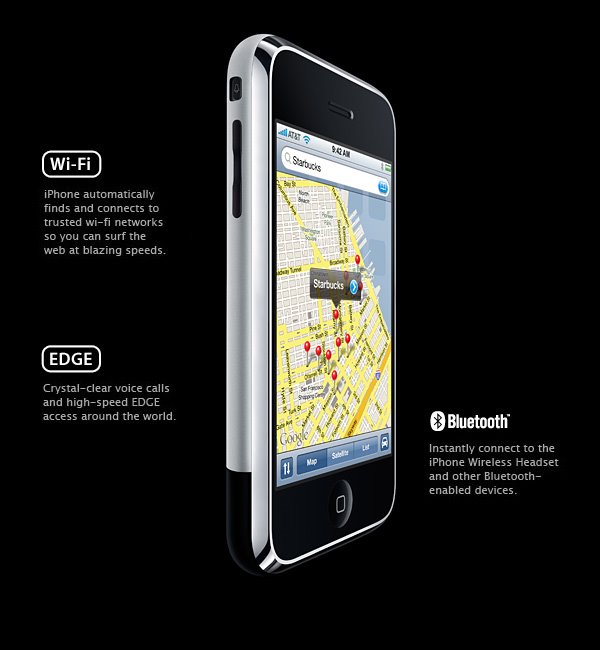iPhone: Harder to Build than Apple Thought
by Arik Hesseldahl and Olga KharifThe announcement that Apple would delay the release of its newest version of Mac OS X, known as Leopard, didn't surprise many people. A rumor suggesting such a delay was imminent had been circulating for weeks.
But Apple's(AAPL) Apr. 12 statement that it has redeployed some of its software engineering and quality assurance personnel away from Leopard to the team working on the June launch of the iPhone suggests that some last-minute problems are cropping up and raises questions about whether Apple has had to push back the iPhone release, if only by some weeks.
Running Into Snags
Various iPhone suppliers have been told that the iPhone may not be available until the end of June, according to Jagdish Rebello, an analyst with iSuppli, a Silicon Valley-based market intelligence firm. Apple had never specified when in June the device would ship, but its wireless partner, AT&T (T), had been cited in published reports naming a June 11 target date, the same day of an Apple software developers conference. "We're hearing it's mostly an issue with the complexity of the device, and that all the component suppliers are making their deliveries on time," Rebello says.
Apple hinted in the statement that making the iPhone is no cakewalk. The cell phone "contains the most sophisticated software ever shipped on a mobile device," Apple said. It added that the device had passed "several" of its required certification tests and would ship in "late June,".
Usually with two months or less to go before market release, a device like the iPhone would ordinarily be going through a heavy battery of testing in preparation for volume manufacturing. The apparently sudden shift of personnel away from Leopard suggests that a late wrinkle has emerged. "Typically the manufacturer and the service provider are making sure the phone meets all its specifications, and that all the production glitches have been ironed out," Rebello says. "It's clear they have found some issues that they need to fix."
First Time Is Right Time
Richard Doherty, director and co-founder of the Envisioneering Group, says he's tested the phone and didn't uncover problems with it. Apple may be beefing up software developer tools and fixing security concerns, he reckons. "Putting a powerful operating system on a phone took extra hands on deck," he says. "The last thing Apple wants is for the iPhone to be vulnerable to hacker attacks."
Apple hopes customers will use iPhone for online purchases, so it's making the operating system more powerful than existing mobile systems, such as Microsoft's (MSFT) Windows Mobile or Symbian, developed by a Nokia (NOK)-led consortium. "They don't want it to be a version 1.0 of the iPhone, but version 4.9," Doherty says. "Apple wants to get it right the first time."
Another challenge is giving the iPhone sufficient battery life. The battery will have to be powerful enough to handle a variety of functions, but it must also be compact, analysts explain. "There's a lot of skepticism about the iPhone's battery life," says Paul Sagawa, an analyst with Sanford Bernstein. The iPhone is expected to have two batteries, one for the phone and the other for the music player. The phone battery, which is very small, would have to power a huge screen, Wi-Fi network connections, and many other power-hungry features.
Wall Street's Not Worried
Wall Street analysts generally dismissed the Leopard release delay, saying there are plenty of other reasons to be bullish on Apple stock. Adobe (ADBE) will soon be upgrading its flagship creative software for the Mac, giving computer users another reason to buy new Macs. And barring any major glitches, many analysts are confident the iPhone will be a hit. "Although the push-out of Leopard is not ideal, we view iPhone as the delivery of the next leg to the Apple growth story," Goldman Sachs (GS) analyst David Bailey wrote in an Apr. 13 research note. Apple stock dipped 2.1% the day after the late afternoon announcement.
The delayed Leopard is the second rollout of a major Apple product this year. Apple also delayed the launch of Apple TV, which hit store shelves at the end of March. But Leopard's four-month delay is minor compared with the many delays that beset Microsoft's latest operating system, Windows Vista. The system was first due in 2005, but didn't hit store shelves until early 2007.
And the extra time means added weeks of speculation surrounding the features due to be included in Leopard, now slated for an October launch. "Our analysis indicates that if not for the 'secret' features, the core Leopard operating system would likely have shipped on time," American Technology Research analyst Shaw Wu wrote in a recent research note.
However embarrassing the Leopard delay, the release of a bug-riddled iPhone would be disastrous, particularly since expectations have been set so high. "It's not easy to make a phone," Sagawa says. "The hype has risen to such a fever pitch that to disappoint people with the product would be quite a black mark."
Hesseldahl is a reporter for BusinessWeek.com. Kharif is a reporter for BusinessWeek.com in Portland, Ore.





No comments:
Post a Comment